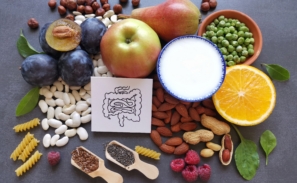
Food, nutrition and digestion
A complete collection to bring lessons on digestion, nutrition and photosynthesis to life. Includes posters, activity sheets, quizzes and more.
24 resources
View Collection20 results

A complete collection to bring lessons on digestion, nutrition and photosynthesis to life. Includes posters, activity sheets, quizzes and more.
24 resources
View Collection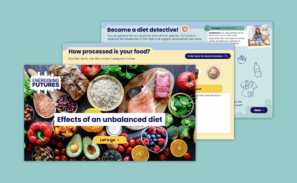
Turn your students into diet detectives as they diagnose nutrient deficiencies and consider the implications of ultra-processed foods (UPFs).
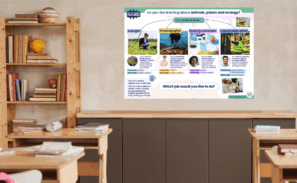
12 resources
View Collection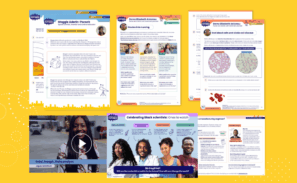
Ignite your students’ passion for science and prove science has a place for everyone this Black History Month and beyond!
16 resources
View Collection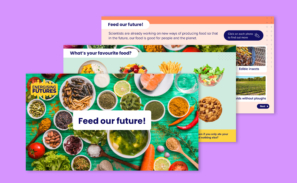
Use this lesson, with video clips presented by Stefan Gates, to recap healthy diets, discover how our food affects our planet and inspire students to come up with a new food for the future.
4 resources
View Lesson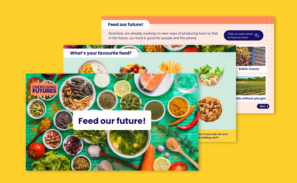
Use this lesson, with video clips presented by Stefan Gates, to recap healthy diets, discover how our food affects our planet and inspire pupils to come up with a new food for the future.
4 resources
View Lesson
A selection of engaging lessons for 11-16s that are perfect for sparking group discussions and providing essential knowledge and key facts on a range of topics in the science curriculum.
27 resources
View Collection
Set your students a real-world challenge that will boost their essential science knowledge and enhance their careers connections within STEM industries.
41 resources
View Collection
Keep your learners engaged in the run up to the summer holidays and find out what they've learned this year with these curriculum-linked challenges, posters, and lessons.
70 resources
View Collection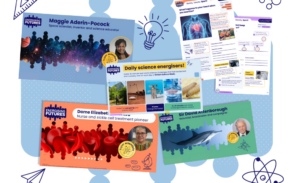
Keep students energised and inspire creative thinking with daily science energisers, curriculum-linked lessons, accompanying worksheets and assemblies.
14 resources
View Collection
From designing electric vehicles to investigating garden wildlife, our hands-on tasks will inspire every budding detective, designer, and curious explorer.
40 resources
View Collection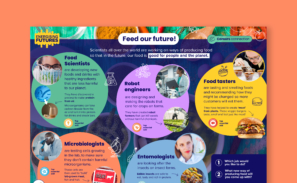
Inspire your budding young scientists with potential STEM careers in the food industry and encourage them to complete the Feed our future! challenge.

Use this presentation, with video clips presented by Stefan Gates, to recap healthy diets, to discover how our food affects our planet and inspire students to come up with a new food for the future.
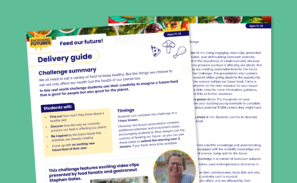
A short guide with curriculum links, and step-by-step instructions for how to deliver the challenge in a 1-hour lesson. Includes ideas for diving deeper, if more time is available.
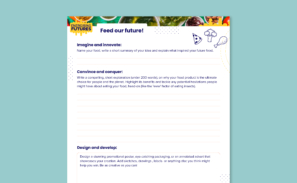
Students use this activity sheet to describe their innovative new future-food.
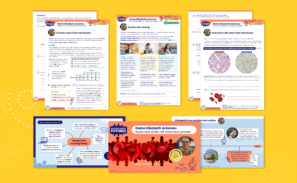
Discover the fascinating career of Black British nurse Dame Elizabeth Anionwu. Learn about how her difficult upbringing inspired her to become a nurse and how her important work in sickle cell disease has changed the lives of sufferers. Apply student's knowledge of genetic Punnett squares and blood cells to sickle cell disease and discover careers in nursing.
4 resources
View Lesson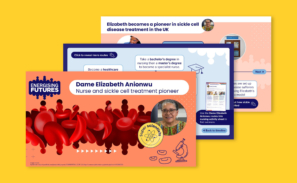
Use this presentation to learn about the career of pioneering nurse Dame Elizabeth Anionwu, her achievements and legacy in nursing and sickle cell disease.
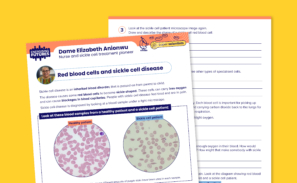
Using students knowledge of blood cells, breathing and respiration, students discover why sickle cell patients suffer from their symptoms.
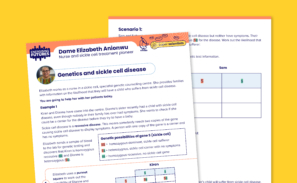
Apply students’ knowledge of Punnett squares to understand the genetics of sickle cell disease. Bring their learning to life as students help families discover the possibility of their child having the disease.
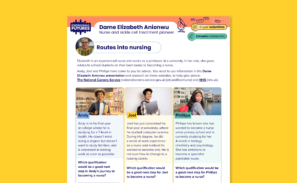
Students develop research skills to discover the different pathways into a nursing career. They learn that nursing qualifications have varied entry requirements, making it an accessible career for all.